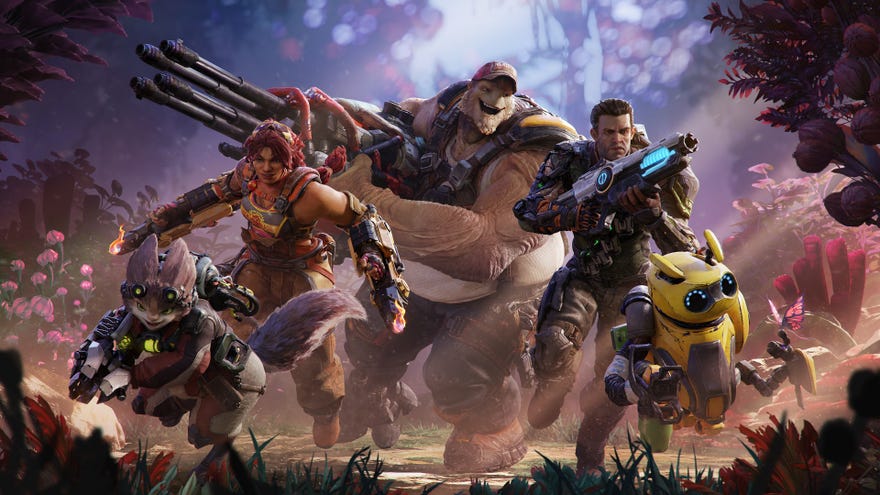Report shares more tales of dysfunction at Amazon Game Studios
Why Crucible sucked
I do love a long read about how things went wrong on a videogame, and Amazon Game Studios have gone wrong on several now. The latest report of dysfunction at the makers (and cancellers) of Breakaway and Crucible is over at Bloomberg, and it mirrors a lot of what had been reported previously, including that the executives in charge don't understand games, and the games designed to meet corporate objectives without much heed paid to what people want to play.
If you've not been paying attention, Amazon Games Studios made several glitzy hires back in 2014, including of developers such as Kim Swift and Clint Hocking, but then spent several years lost in development hell. When the studio did eventually begin to announce and release games, those games were met with little enthusiasm, and were cancelled.
The broad strokes of this report are similar to what was written about by Wired last year. Amazon want to make games as a way of driving people towards Amazon Prime and their other services, but the experienced game developers within the company were often ignored in favour of sloganeering executives who had proven successful in other parts of Amazon's business, such as book publishing.
Bloomberg's report largely focuses on Mike Frazzini, the executive who helped start Amazon Game Studios. He allegedly did not understand games. For example:
Frazzini’s lack of experience in video games showed during project review sessions, a standard industry ritual when the boss plays early prototypes and offers feedback. His comments were of the focus-group variety, recalls a former Amazon developer: “Why is it this color?” and “Seems fun. When will it be ready?” On a different occasion, says another developer, the team cringed as Frazzini struggled to differentiate between hyper-polished conceptual footage and live gameplay, a sign he didn’t understand the technology.
The article also alleges that he would demand developers "chase a new trend" he'd just read about, and that this lead to the company's attempts to replicate other, already successful games. Several examples are given, including a game inspired by League Of Legends called Nova that was cancelled in 2017, and a game called Intensity inspired by Fortnite and cancelled in 2019.
It seems this was also the starting point for Crucible, Amazon's hero shooter inspired by Overwatch. Crucible was launched in May 2020, pulled from release in June for re-tooling, and then cancelled outright in October.
There are a few positives among the stories told by staff. For example, they were often paid far above the market rate and rewarded with valuable Amazon stock, and staff were rarely asked to work overtime. Sadly there are also more familiar game development tropes:
The studios cultivated a “bro culture” in which women often weren’t given the same opportunities as men, former employees say. Four female game developers say their worst experiences of sexism in the industry were at Amazon. They shared stories of being ignored and undermined by male executives and say they were eventually driven out of the company. One former employee says male colleagues completely ignored her comments in meetings. Another says a member of senior leadership impeded her career growth after she disagreed with him and that he created new management positions above her and filled them with men.You can read the full story over at Bloomberg, assuming you haven't already hit your free article limit for the month.


